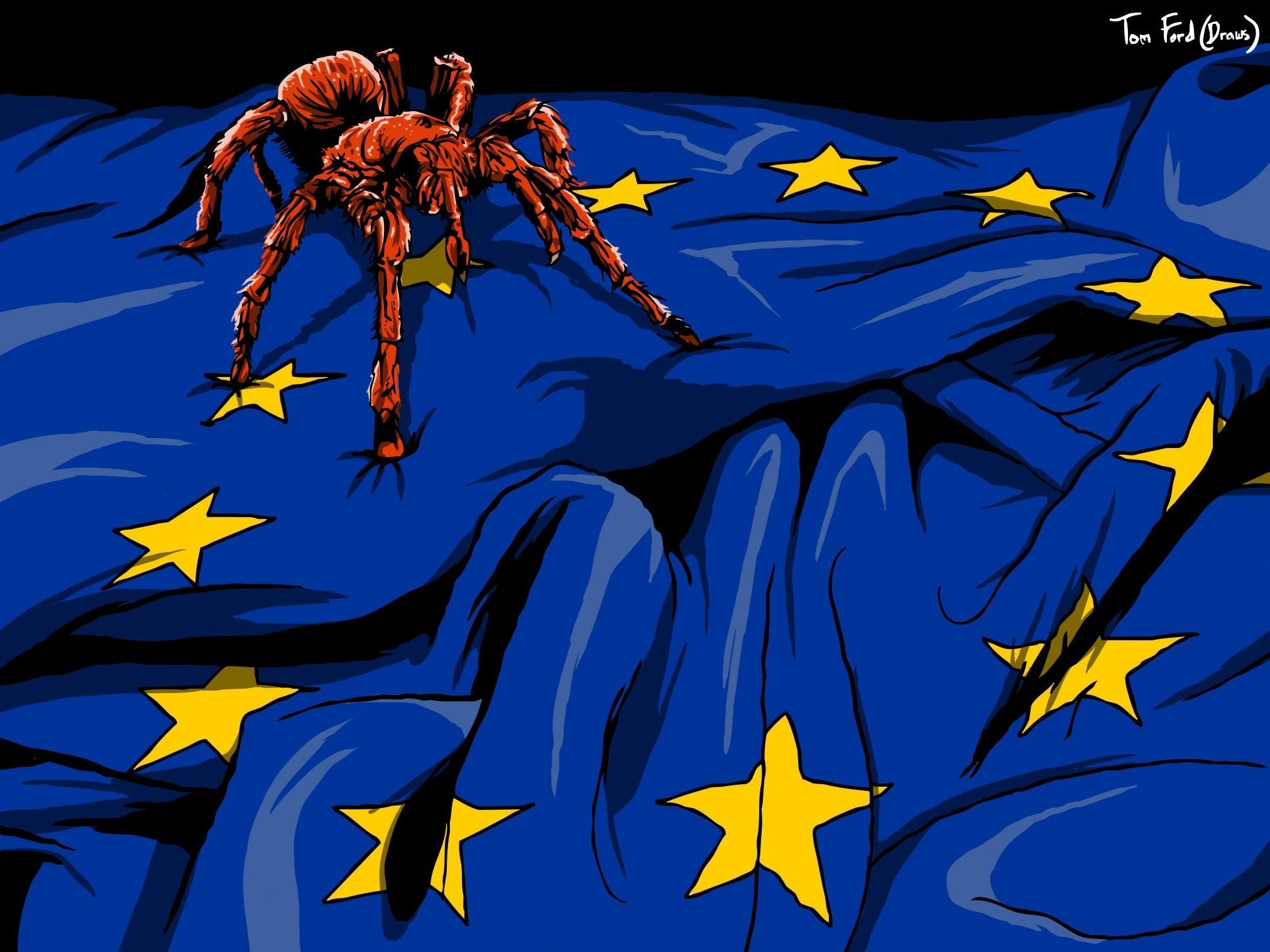What is it that you're really afraid of?
Continuing her series tackling socially unacceptable questions, Christine Manby asks how we ought to deal with life limiting phobias

Your support helps us to tell the story
From reproductive rights to climate change to Big Tech, The Independent is on the ground when the story is developing. Whether it's investigating the financials of Elon Musk's pro-Trump PAC or producing our latest documentary, 'The A Word', which shines a light on the American women fighting for reproductive rights, we know how important it is to parse out the facts from the messaging.
At such a critical moment in US history, we need reporters on the ground. Your donation allows us to keep sending journalists to speak to both sides of the story.
The Independent is trusted by Americans across the entire political spectrum. And unlike many other quality news outlets, we choose not to lock Americans out of our reporting and analysis with paywalls. We believe quality journalism should be available to everyone, paid for by those who can afford it.
Your support makes all the difference.It’s been a big year for spiders. The dry warm weather has seen back garden plants festooned with the kind of elaborate webs you just can’t build if it’s raining every two hours, as one would normally expect from a British summer. There have been plenty for the spiders to eat too, as flies proliferate on picnic rubbish. I am writing this under the watchful eye – or should that be eyes? – of a house spider as big as a mouse, which has set up home in a corner of the kitchen ceiling that can only be reached by standing on top of the fridge. Since I’m not due a visit from Mum or my sister, the spider can stay. I’ll call her Charlotte.
Spiders don’t bother me, but for around 45 per cent of Brits the idea of sharing kitchen space with an arachnid is the stuff of nightmares. Fear of spiders is Britain’s number one phobia, with a third of sufferers saying it affects their day to day life. It affects travel plans – better forget Australia. It causes anxiety and sleeplessness. It even causes embarrassment, such as that suffered by all three grown adults (including a prison officer) living in the house next door to my childhood home, who were trapped on the first floor by a spider sitting halfway up the stairs. They had to scream for my dad to come and rescue them.
But joking aside, there are very real reasons to be afraid of spiders. While in the UK we don’t generally have to worry about spiders that could kill us, we do have local species that can deliver a nasty bite. Britain’s most poisonous spider is the false widow (so called because it looks like its deadly cousin, the black widow). Google “false widow” and you’ll find a whole host of horror stories, like that of poor Jordan Rassas, who had to spend nine days in hospital after one bit him on the elbow while he was sleeping. Or Essex decorator Ricki Whitmore, who almost lost a leg when he was bitten by a spider from a nest he found while helping to renovate a school. When you hear their stories and see the pictures of their suppurating sores it seems to make more sense to give our eight-legged friends a wide berth.
Indeed, it’s been suggested that spider and snake phobias (ophidiophobia) could be innate. Having lived alongside spiders and snakes that might seriously harm or even kill us for millions of years, human beings have evolved to be hardwired to avoid them. In 2017, neuroscientist Stefanie Hoehl and her team at the University of Vienna discovered that infants as young as six months old react differently when shown pictures of flowers or spiders. The spider pictures illicit more pupil dilation, representative of a stress response.
So the prospect of real danger explains our fear of spiders and snakes. The second most common phobia in the UK is actually fear of heights, or acrophobia, which also seems quite rational. Falling from a great height can be life limiting. But there are an awful lot of phobias that don’t have such an obvious genesis. What are you afraid of? A no-deal Brexit and Donald Trump? Obviously. But how about the feel of velvet? Or touching buttons?

Fear of buttons is a very real thing. It’s called koumpounophobia and it’s more common than you could possibly imagine. Steve Jobs was the phobia’s most high profile sufferer, hence his penchant for polo necks. You can’t die from buttons (unless you swallow one and it gets stuck in your windpipe, of course) so how does a phobia like that come about. Well, actually, fear of choking on a button might be the cause. Childhood trauma is usually the answer behind any unusual phobia. Maybe as a small child Jobs was terrified by an adult overstating the danger of buttons as a choking hazard. Whatever the reason, Jobs hated buttons of all kinds so much, he was moved to develop the touch screen.
How do you get over a life limiting phobia? Do you just have to spend the rest of your life wearing T shirts or should you go to Marks and Spencer with a trusted friend to spend a controlled hour stroking button-down shirts? Should you take the train or force yourself to fly? Should you avoid clown movies or star in one?
Johnny Depp suffers from coulrophobia, which is a fear of clowns. He says: “It’s impossible, thanks to their painted on smiles, to distinguish if they are happy or if they are about to bite your face off.” Depp’s fear seems especially ironic for one who has made a career out of clown-like characters. His Willy Wonka and Mad Hatter are both at least as terrifying as the clown in Stephen King’s It.
On a personal level, I have two phobias that I would love to be able to control. But right now, I would rather let a tarantula walk over my face than be confronted by the trigger for the most frustrating of my phobias, which is queunliskanphobia – fear of spitting. I can’t bear it. It makes me ill. Last year I spent an afternoon at Shakespeare’s Globe rocking in horror through a production of The Taming of The Shrew that involved more gobbing than a Champion’s League final. I was too traumatised even to get up and walk out.
The fashion for garnishing just about every dish that comes out of a restaurant kitchen with some sort of foam has been a real problem for me. Why would you cover someone’s meal with something that looks like spit unless they’d already sent it back to the kitchen three times complaining it was too cold? I also suffer from chiclephobia, which is a fear of chewing gum. The smell of it, the thought of it, but especially the sound of people masticating away on it. That horrible wet smacking noise makes me sway like a Victorian spinster in need of smelling salts.
You won’t keep me trapped at the top of the stairs with an evil clown and three false widows, but chew gum with your mouth open before spitting it out in front of me and I will find it hard not to vomit (my apologies to anyone suffering from emetophobia). How I picked up my phobias, I do not know for sure, but if arachnophobia is keeping people from travelling to Australia, chiclephobia makes me long for Singapore, which banned the vile stuff in 1992. I’d move there like a shot. If it weren’t for the enormous snakes.
While I’ve been writing this, Charlotte the kitchen spider has added an extension to her web. She seems to have written something on it. Ah yes. She says: “Don’t forget to preface your feature on phobias with a warning for Hellenologophobics.” That’s people with a fear of Greek names for things, who may have been triggered by this column.
Christine Manby has written numerous novels including ‘The Worst Case Scenario Cookery Club’
Join our commenting forum
Join thought-provoking conversations, follow other Independent readers and see their replies
Comments